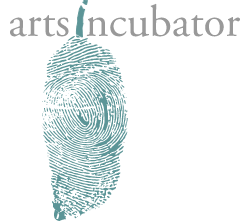
Fort Collins to Make a Rocky Mountain Regional Arts Incubator
Fort Collins, Colorado, tasked with creating a Rocky Mountain Regional Arts Incubator, won a $100,000 “Our Town” grant from the National Endowment for the Arts. The collaborators on this public-private “creative placemaking” initiative include the city of Fort Collins’s Cultural Services Department, Colorado State University and Beet Street, a cultural programmer behind Fort Collins’s creative industry. When developed, AIR (Arts Incubator of the Rockies), plans to serve 10 states. The creative placemaking goal is defined by NEA as “using smart design and leveraging the arts to create livable, sustainable neighborhoods with enhanced quality of life, increased creative activity, distinct identities, a sense of place, and vibrant local economies.”

The Carnagie Building in Fort Collins will be home to AIR
I spoke on this vibrant economies subject with interim Beet Street executive director Beth Flowers, trying to clarify how AIR will be a creative placemaker for Fort Collins while also extending to 10 states. Flowers declined to provide detailed specifics, as she said they are still in the process of finalizing their business plan. On Nov. 10-11 Fort Collins hosts a summit with the state arts councils from Colorado, Wyoming, Montana, Idaho, Utah, New Mexico, North Dakota, South Dakota, Nebraska and Nevada, the 10 states to be served by AIR. Flowers said a plan will be unveiled about next steps in January.
But a recent Beet Street survey hints at details that might emerge from grafting the goals of creative placemaking across a broad and distant geographic swath: delivering online classes, hosting networking events in communities throughout the region, offering reduced cost business-coaching and consulting services, as well as possibly free access to an online database of resources, and a monthly e-newsletter.
According to its NEA proposal AIR plans to use $50,000 for a needs assessment and relationship building with regional arts councils; another $50,000 to develop curriculum; $20,000 for internship development; and $20,000 for business plan development. An additional $50,000 was forseen for interior/exterior design of the historic Carnegie building in downtown Fort Collins; and $10,000 for marketing and web design and development.
 Which raises a lot of question, but first: What is an arts incubator?
Which raises a lot of question, but first: What is an arts incubator?
Related to a “business incubator” concept that dates to the industrial 1950s, incubators support entrepreneurs and small businesses by creating shared economies around affordable office or warehouse space, and other business costs such as administration and accounting. Most business incubators require businesses to meet certain benchmarks and “graduate” from the incubation program. Today, according to the National Business Incubation Association, more than half of all incubators also provide online or distance-learning incubation services to affiliate members who are not in the same physical location as the incubator.
As to the arts, arts are not often seen as fitting neatly into business models. But to the extent cities have taken active “incubation” approaches, those historically include the Sammons Center for the Arts, founded in 1981 in Dallas, to renovate a historic pump station and operate it as a multipurpose arts center. In 1990, Arlington, VA launched an arts incubator model that has been repeated: local governments across the country provide subsidized rent to artists and arts organizations. Arlington grew its arts economy from $1 million to $5 million between 1990 and 1996 using this approach.

Class at Sammons Center for The Arts
But that’s the old model of incubators, both in business and the arts, requiring a start-up venture to set up shop at the incubator’s site. Fast forward to virtual models like Sramana Mitra’s One Million by One Million, a global initiative designed to help a million entrepreneurs around the world reach a million dollars each in annual revenue by 2020, and Fractured Atlas, a New York-based virtual arts incubator primarily for individual creatives providing free classes with titles like “Getting Your Sh*t Together” and a NYC database linking empty rehearsal spaces with groups looking for space.
What does this mean for Fort Collins and the 10 states that will fall into the purview of AIR? The most Flowers offered were some lofty adjectives: “organic,” “innovative,” and “limber” to describe the partnership of AIR. “We want to be open and very observant of what’s happening in the world and find fresh ways to insert ourselves as creatives,” Flowers said.
AIR will be based in Fort Collins, and will take over the historic Carnegie building. Flowers said the City Cultural Office will handle all the programming, which includes remodeling the Carnegie to house two large gallery spaces and offices for Beet Street and AIR. No office space will be leased to help incubate start-up creative industries. However, Flowers asserted that the surrounding blocks on Matthews and Olive Streets, half a mile from Old Town Square in downtown Fort Collins are “ripe for redevelopment” and “would make excellent live/work spaces.”
“Nobody is helping small cities and small towns. State arts agencies don’t have the resources,” Flowers said. As comments go, this one indicates that inventive are the partnerships that must sow fertile ground from out of the scorched earth of state arts budgets. From the Fort Collins grant application:
The curriculum and professional development programs include components that are intended to be models for activating business professionals and other resources in small, rural communities.
So AIR is going to incubate incubators?
A clue to this might lie in some programming innovated in Colorado this April, when Beet Street partnered with Creative Capital to bring its “Professional Development Core Weekend Workshop ” to Colorado for the first time. Creative Capital workshops are targeted to creative workers, to help them sustain creative careers by doing strategic planning, marketing and public relations and fundraising. I was selected to participate and heard discussion from Creative Capital about how it is moving to make more training programs available virtually, to reach a broader audience of creatives.
Flowers said AIR wants to “create community through technology.”
“If we can buy awesome professional development and spread it throughout the region via distance learning and some on-the-ground contact in each community, then we can translate the experts into real experiences on the ground.”
 My hunch then is that AIR plans to help bring this type of Creative Capital training to the region. (But if AIR plans to utilize a website to provide live streaming workshops, chat rooms and social networks for creatives, as well as distribute original content, $10,000 sounds like far too conservative a budget number for web development.) Who might emerge as partners? Beet Street could conceivably partner with Colorado State University, and more likely, will tap into the already existing CSU Online & Distance Learning platform that provides certificate and noncredit courses for graduate as well as undergraduate students and working professionals.
My hunch then is that AIR plans to help bring this type of Creative Capital training to the region. (But if AIR plans to utilize a website to provide live streaming workshops, chat rooms and social networks for creatives, as well as distribute original content, $10,000 sounds like far too conservative a budget number for web development.) Who might emerge as partners? Beet Street could conceivably partner with Colorado State University, and more likely, will tap into the already existing CSU Online & Distance Learning platform that provides certificate and noncredit courses for graduate as well as undergraduate students and working professionals.
While Flowers described it as “an exciting thing to foster so many willing players with so much to gain,” hopefully the local legs-on-the-ground will remain local and not be loaned executives traveling from somewhere else. Place does matter, and for “grassroots” to be a grassroots movement it must emerge from, for and in Florence, MT, Bismarck, ND or Monte Vista, CO, run by locals.
Stay tuned…

Leanne: How fortuitous to run across this column following our phone conversation last week. I was one of the SAA types participating in the Nov. 10-11 arts incubator meetings in Fort Collins. I like your conclusion: “Place does matter, and for ‘grassroots’ to be a grassroots movement it must emerge from, for and in Florence, MT, Bismarck, ND or Monte Vista, CO, run by locals.” It’s still unclear how these far-flung towns (and Rock Springs and Casper and other WY communities) will benefit from the incubator. But it will have to be local and that seems to be what Beet Street is aiming for. I’ve penned a few posts on my personal blog about the AIR meetings and will doing something a bit more strategic for the Wyoming Arts Council blog today. Talk to you soon…
Mike, I had requested to be an observer during the recent AIR meeting in Fort Collins where you participated, representing Wyoming Arts Council. Unfortunately, that request was denied. Adobeairstream.com is a great art business. The owner, Ellen Berkovitch, is a gifted writer and entrepreneur. It isn’t easy to be both, but she wears the hats well! I am lucky to work with her.
This link today was picked up today by Artsjournal.com as Leanne has consistently done investigative arts reporting from Colorado for our three years publishing.
Ellen: A new reader but plan to be a continuing one. Great site, and I’ve put a link up on my blog.
Trackbacks for this post